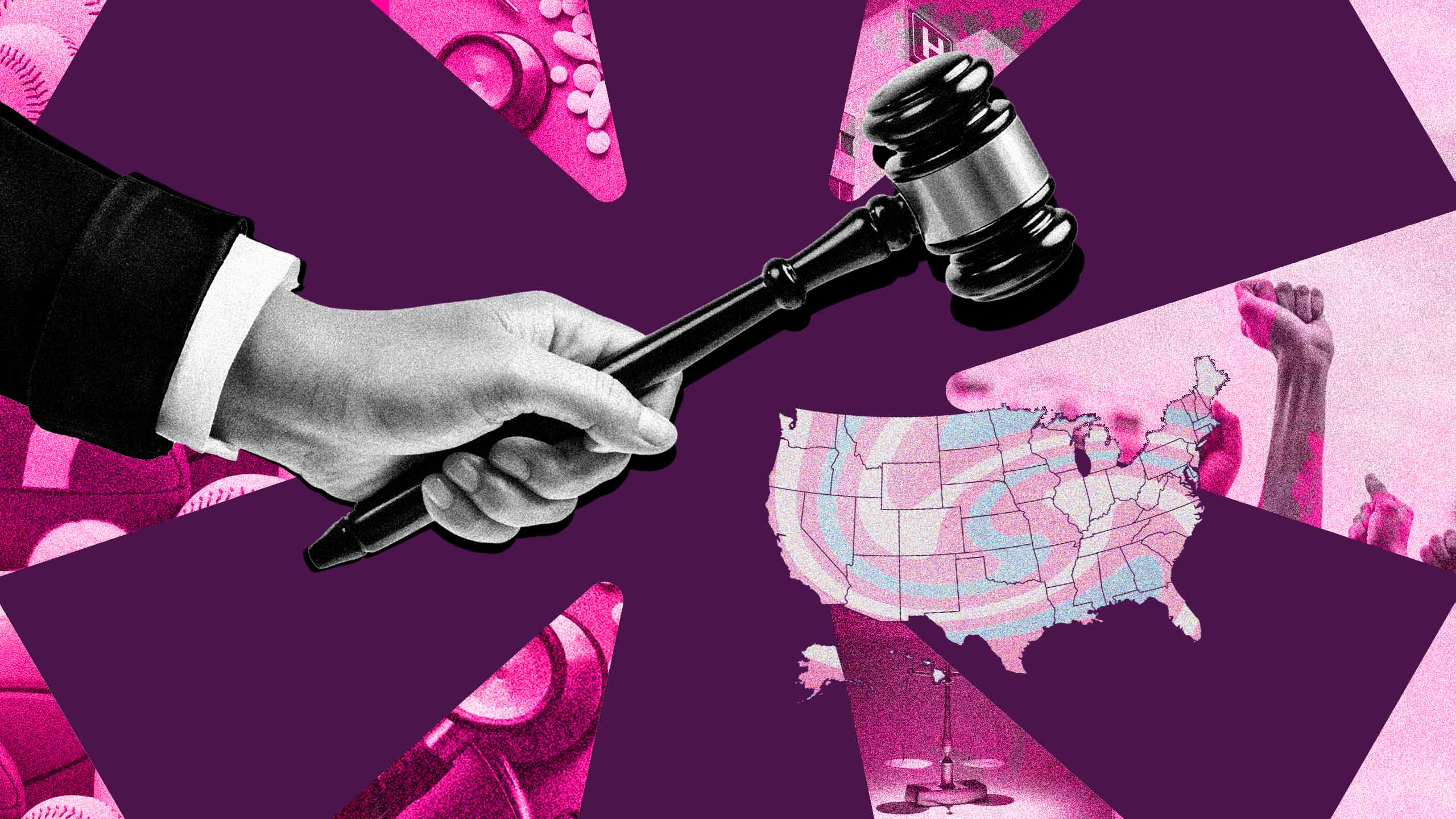As the latest state legislative session dawns, anti-trans bills are being introduced at breakneck speed. According to the ACLU, more than 120 anti-LGBTQ2S+ bills have been introduced this year. Piggybacking off the success Republicans had with banning trans girls from participating in girls’ sports, they’ve taken their legislation to entirely new levels.
In dozens of states, bills have been filed that would ban gender-affirming care for trans youth. But some of those would also forbid some trans adults from accessing transition care. For example, a bill proposed in Missouri would ban transition care for anyone under the age of 25. These are the first such bills to include restrictions on care for adults in their 20s, and they represent a dangerous escalation in the ongoing culture war over the existence of trans people.
It’s difficult to predict if any of the adult bans will pass. The moderate conservative line has long been something like this: “I support the right of adults to do what they want with their bodies, but I draw the line at kids.” These bills will certainly put those statements to the test.
It was easy to see these proposals coming, as anti-trans activists have been testing out messaging using studies that show that humans don’t reach full cognition until age 25, ignoring that society at large, medicine and the law don’t really follow that benchmark. After all, in the U.S., people can begin working at 14, serve in the military at age 18, drink alcohol at 21 and be forced to carry a baby to term at seemingly any age in some conservative states. All of these are potentially life-changing decisions that younger people are legally allowed or forced to make already in society.
These norms are rarely questioned because they’re all mostly seen as relatively natural decisions, while trans life has always been seen as unnatural.
Many anti-trans activists suggest tighter restrictions may prevent future cases of regret—but there’s no actual scientific data to suggest that restrictions on transition care would reduce the already minuscule 1-2 percent rate of detransition or regret.
Instead, the media at large has mostly force-fed the public a steady diet of fear-mongering stories about detransitioners, hoping to convince would-be allies that the issue of gender transition is more muddled than it actually is. The detransition panic also serves to scare closeted or newly out trans people into believing that they may one day regret their transitions.
The tactic is meant to sow uncertainty and delay, further prolonging a trans person’s exposure to significant gender dysphoria that could be relieved through starting transition care. Conservative politicians are hoping to use the state’s power to create even further artificial delay to their state’s trans populations.
The calculation is simple: conservatives don’t like that trans people exist, so they will try to make life for trans people as impossible to live as they can. This is why last year’s fight over trans girls’ participation in girls sports—which allegedly was “simply about fairness in women’s sports”—has now morphed into anti-abortion-level zealotry against what medical experts have long agreed are the best treatments for gender dysphoria. Once they are done with this phase, conservatives will be free to move on to ever more extreme government restrictions on the trans community.
Religious conservatives believe being trans is a sin, so they picture themselves as self-appointed saviours of souls who can rescue trans people by using the state to control their most intimate medical decisions.
But as I sit here and survey the vast and ever-growing anti-trans landscape, I can’t help but wonder, if being cis is as normal and natural as these legislators seem to think it is, then why would we need such draconian, anti-constitutional laws to get people to not be trans?
Since the fight for trans rights began to hit the mainstream nearly a decade ago, conservatives have vehemently claimed that transness is a fad. But surely if that were true, the transphobic laws, the campaign ads, the armed hate rallies outside of drag shows, the insanely bigoted YouTube and Twitter rants—not to mention the rampant school bullying—would have been enough incentive to put an end to the alleged trans sham.
Yet, trans people persist. There’s no sign or indication of a downturn in the number of people identifying as trans. And that’s the thing about trans people: we’ve always been resilient. As a population, we’ve survived countless cultural erasures, the Nazis, anti-crossdressing laws and a serious epidemic of violence against our Black and brown sisters.
This current conservative backlash is just a blip on the radar of trans history, and I have no doubt we’ll survive this as well. We’ll make it because gender dysphoria is a natural variation of the human experience that cannot be socially suppressed out of existence. Trans people are stronger than we realize. It’s not the time for fear: it’s time to fight back.


 Why you can trust Xtra
Why you can trust Xtra


